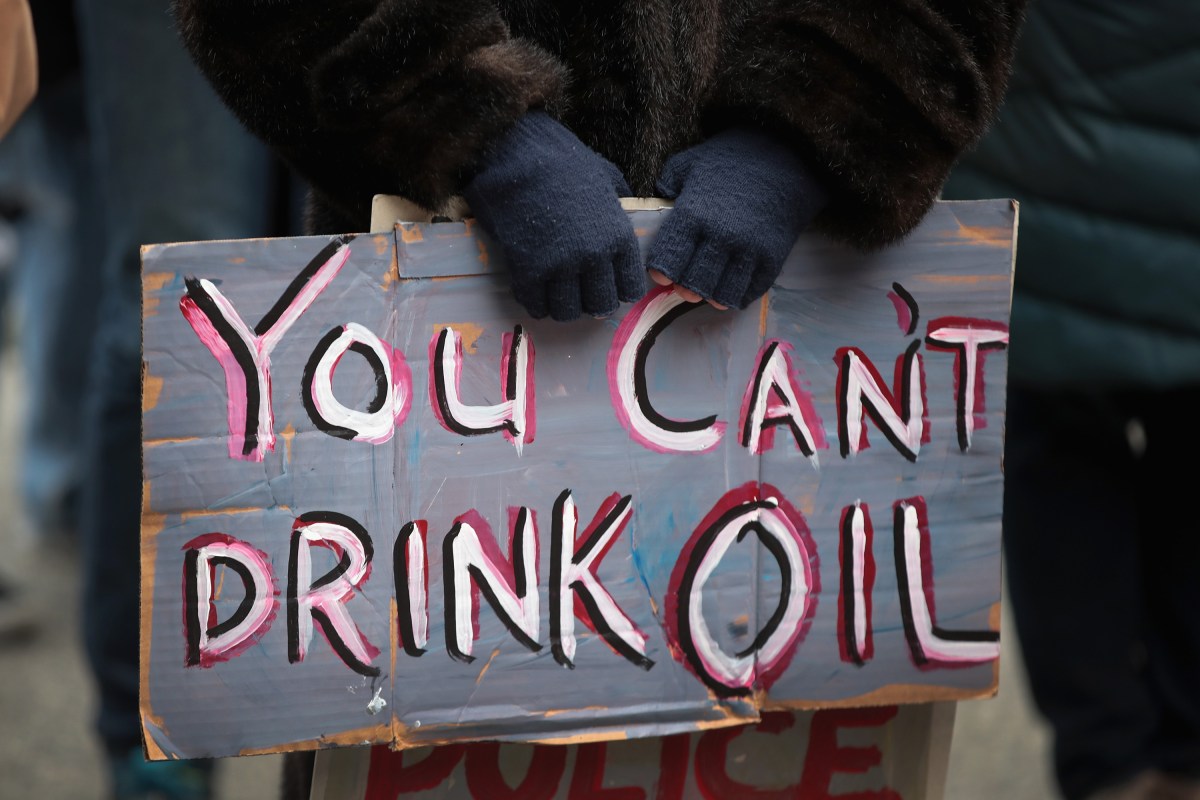In 2016, Indigenous activists known as water protectors protested the Dakota Access Pipeline, which was slated to cut through Standing Rock Sioux reservation. The water protectors argued that inevitable oil spills from the pipeline would poison the land’s water supply, and now a massive oil spill in Kansas has proven them right … again.
The latest leak, in Washington County, Kansas, is from the Keystone pipeline. A rupture in the pipeline released almost 600,000 gallons of oil into surrounding soil and a nearby creek. According to ABC, the spill is now larger than all other Keystone oil spills combined.
The spill has been contained, but the extent of the damage is uncertain so far. “This is going to be months, maybe even years before we get the full handle on this disaster and know the extent of the damage and get it all cleaned up,” Sierra Club lobbyist Zach Pistora told AP.
Matt Casale, director of the U.S. PIRG Education Fund’s environment campaigns, issued a statement, saying, “The latest spill is another tragic reminder of the costs of our reliance on fossil fuels. At every stage, from extraction, to transportation, to burning, fossil fuels put our environment and health at risk. Not only are they the driving force behind climate change, but when the pipelines spill — and they always spill — the damage is severe. The path to a clean and healthy future is clear, and it doesn’t travel in an oil pipeline.”
This spill is exactly the kind of environmental disaster that Indigenous groups have been warning about for years. According to a US Government Accountability Office report, in the 12 years since it was completed, the Keystone pipeline sprung 22 leaks and released about 500,000 gallons of oil before the Washington County spill.
The water protectors dominated national news in 2016, when they launched a multipronged campaign against the Dakota Access Pipeline. Their campaign included legal challenges and an encampment in Minnesota. The National Guard responded by violently suppressing the protests. Since then, the water protectors have protested the Line 3 tar sands pipeline expansion, which violated Anishinaabe treaties and threatened vulnerable ecosystems in Minnesota, and the Line 5 relocation project, which is slated to cut through Chippewa land.
(image: Scott Olson/Getty Images)










Published: Dec 14, 2022 05:02 pm